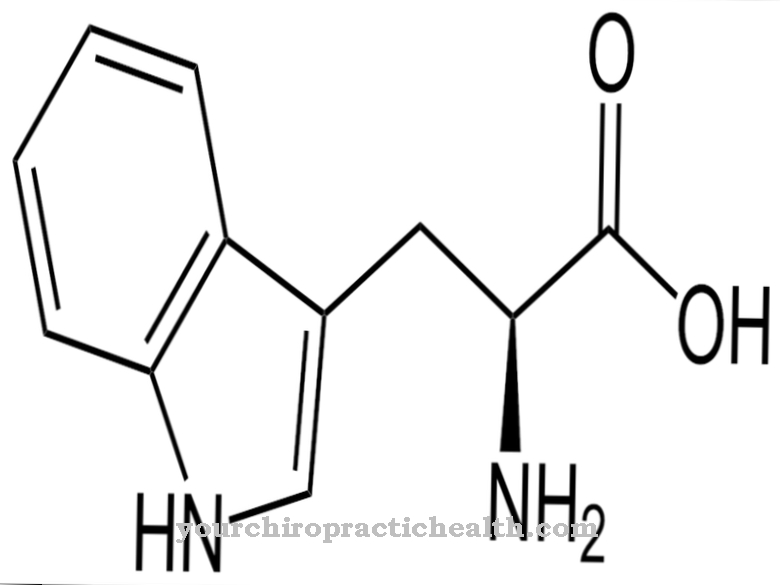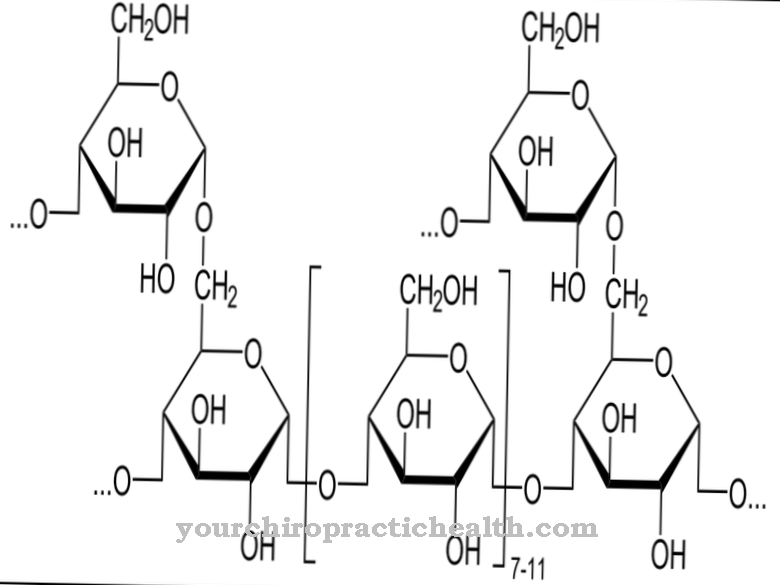In the Wernicke aphasia it is a serious language and word finding disorder. Sick people suffer from extreme language disorders and are only able to understand or reproduce the simplest words with great difficulty. Wernicke aphasic patients are only able to understand language content with intensive training and therapy by concentrating on facial expressions and language differences.
What is Wernicke aphasia?
The Wernicke aphasia is one of the most profound language disorders that people can develop. Ironically, aphasia only occurs after language development is complete. Affected people may well have a certain vocabulary, but are not able to express themselves specifically and in a focused manner.
It is therefore possible that Wernicke aphasia completely or only partially disrupts language formation. Aphasia sufferers are nevertheless able to recognize facial expressions and to interpret the volume and intention of the tone of voice, for example when an angry person screams or someone cries. The illness must be strictly differentiated from a mental or intellectual disability.
causes
The cause of this form of aphasia is mostly a lasting damage to the Wernicke language center, a brain region in the upper temporal lobe of the person concerned. In most cases this is caused by a stroke or less often by an accident. Under these circumstances, the language center is either directly damaged or insufficiently supplied with blood and suffers permanent damage as a result of the acute lack of oxygen.
In accidents, a traumatic brain injury, which can occur in accidents in sports or traffic, often directly injures the affected brain area and suffers permanent damage as a result. The less common causes of Wernicke aphase can include a local brain tumor, insufficient supply of the brain or age-related dementia.
Symptoms, ailments & signs
Aphasia can affect all areas of human communication. This includes language interpretation, language, and reading and writing. If the aphasia was caused as a result of direct damage to the brain area, the relevant disorder occurs directly and almost immediately. Aphasia, which has its origin in dementia, occurs gradually in episodes and continues to progress in the course of degenerating brain matter.
Dementia-related degradation of brain matter, which is associated with aphasia, is often accompanied by side symptoms such as changes in personality and personal habits, but also by memory and concentration disorders. Wernicke aphasia results in two basic symptoms.
On the one hand, Wernicke aphasia sufferers from word-finding disorders in which the structure and thus the meaning of the words are greatly modified. So syllables and letters are omitted or added depending on the person. For example, a simple word like ball becomes all. As a result of these symptoms, known as paraphasia, it can also happen that the aphasic person confuses word meanings completely.
This can happen even with words that don't have a similar sound. On the other hand, not only individual word formations are affected, but the entire grammatical competence. Sentences formed by Wernicke aphasic patients often appear long and cryptic, subordinate clauses are incorrectly connected with one another or duplications occur, which makes the complete sentence formation incomprehensible.
Diagnosis & course of disease
Since language plays a central role in our lives, the detection and diagnosis of aphasia is relatively straightforward. If the first symptoms such as those already mentioned appear, the person affected is checked for Wernicke aphasia by a neurologist on the basis of appropriate tests. So-called token tests have proven to be particularly effective.
The neurologist asks the patient to match several cards of different colors and sizes in pairs. In most cases, this first test determines whether there is an aphasic language disorder. A language disorder can only be determined more precisely with the AAT test (Aachen Aphasia Test).
This can also determine the degree of the disease and also serves as a long-term instrument in therapy to identify whether therapeutic countermeasures are having an effect. If these tests are initiated as a result of direct damage to the brain, neurological tests that look at the patient's intelligence and personality should also be performed.
Complications
As a rule, those affected by Wernicke aphasia suffer from a very pronounced language disorder. It is difficult for them to find the simplest words, so that it is very difficult for those affected to communicate with other people. The disease has a very negative effect on the patient's everyday life and can lead to severe social complaints and complications.
The development of children is also significantly restricted due to Wernicke's aphasia, so that various complaints can also arise in adulthood. Often the children also suffer from disorders of concentration or memory disorders. Different words are mixed up, so that those affected sometimes suffer from panic attacks because they are ashamed of the disease. This can lead to bullying or teasing, especially with children, so that they develop depression or other psychological complaints.
Direct and causal therapy for Wernicke aphasia is usually not possible. Those affected are dependent on various therapies that can alleviate the symptoms. However, a positive course of the disease cannot always be predicted. The life expectancy of the patient remains unaffected by Wernicke aphasia.
When should you go to the doctor?
Disruptions in interpersonal communication should always be discussed with a doctor. If language is difficult or impossible for children to learn, contact with a doctor should be established. Adults, adolescents or children who have already learned to speak adequately also need medical help and support if their language ability has regressed. Clarification of the cause is necessary so that a diagnosis can be made and a treatment plan can be drawn up.
If there are problems with finding words or if the articulation is characterized by irregularities, the person concerned should go to a doctor. Inconsistencies in memory activity, confused talk and a reduced ability to concentrate should also be examined and clarified. If an adult shows unusual changes in personality, behavioral disorders or a deterioration in memory, a doctor should be consulted.
If the person concerned regularly confuses words with one another, this is to be understood as a warning signal from the organism. If subordinate clauses can no longer be linked correctly, this should be interpreted as a further sign of an existing illness. If sentence formations are completely incomprehensible to people in the immediate vicinity, this fact should be discussed with the person concerned. He needs medical help as this is a disease that requires therapy.
Treatment & Therapy
After an appropriate diagnosis and determination of the severity of the aphasia, a linguistic therapy supported by neurologists and speech therapists can be carried out. The earlier Wernicke aphasia is discovered, the greater the chances the patient has to improve his communication. The primary goal of therapy is to renew language skills.
In addition, the therapist must be able to convey the feeling that the patient is not alone with his severe illness, but has positive prospects of recovery. To regain basic language skills, the therapist will use familiar, simple word sets. Saying the months, favorite objects, days of the week or family names are only a first step and quickly show success, which should also motivate the patient.
Since Wernicke's aphasia often influences the formation of sentences, the therapist practices correct grammar and meaningful arrangement of words on the simplest of sentences. Towards the end of the therapy, the aphasic practitioner will finally practice applying the regained language skills to everyday communication. This section is usually carried out in a controlled environment of group therapy with other aphasic patients and relieves the patient of the fear of having to speak to strangers in an unfamiliar situation.
You can find your medication here
➔ Medicines to improve concentration and language skillsprevention
Completely preventing Wernicke aphasia is simply impossible. Apart from accidents that can be attributed to force majeure, it is possible to prevent risk factors such as strokes or sclerosis. A healthy, balanced diet and staying physically and mentally active mean an enormous reduction in risk. Pay attention to key nutritional values such as blood sugar values, your cholesterol level, blood lipid values and your blood pressure. Avoid smoking regularly and work on possible obesity.
Aftercare
In most cases, the measures of direct follow-up care for Wernicke aphasia are significantly limited and in some cases are not even available to the person concerned. Therefore, the person affected should ideally consult a doctor at the first signs of this disease and also have treatment carried out in order to prevent further symptoms and complications from occurring.
Self-healing cannot usually occur in Wernicke aphasia, so treatment by a doctor is necessary. As a rule, the person affected with this disease is dependent on the measures of physiotherapy and physiotherapy. Many of the exercises can be repeated in your own home, which significantly accelerates healing. As a rule, taking various medications is also very important.
It is important to ensure that it is taken regularly and that the dosage is correct in order to permanently counteract the symptoms. If you have any questions or side effects, you should always consult a doctor first. The further course of Wernicke's aphasia is highly dependent on the severity of the disease, so that a general prediction cannot be made. The life expectancy of the person affected may also be reduced.
You can do that yourself
Wernicke aphasia primarily requires medical treatment. The mostly causal stroke must be clarified before therapy can be started. Which supportive measures are useful depends on the individual symptoms.
Comprehensive speech and swallowing therapy is almost always necessary. Therapy can be supported at home by speaking regularly and performing suitable exercises. The patient needs a lot of support and attention in this phase of the illness. The stroke usually also leads to immobility, which can be compensated for by organizing an outpatient care service, for example. In addition, it should be ensured that the patient takes the prescribed medication exactly according to the doctor's instructions.
Identifying risk factors is part of preventing another stroke. In general, a healthy lifestyle with sufficient exercise, little stress and a healthy diet must be maintained. The person concerned should always be informed about incorrectly formed sentences or words. Regular training is the most important measure to restore lost skills. Which self-help measures make sense in detail must be discussed with the responsible doctor.

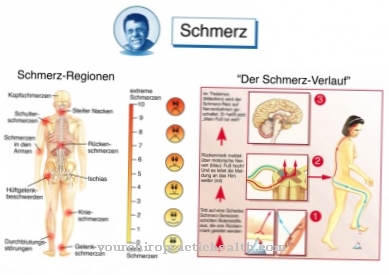
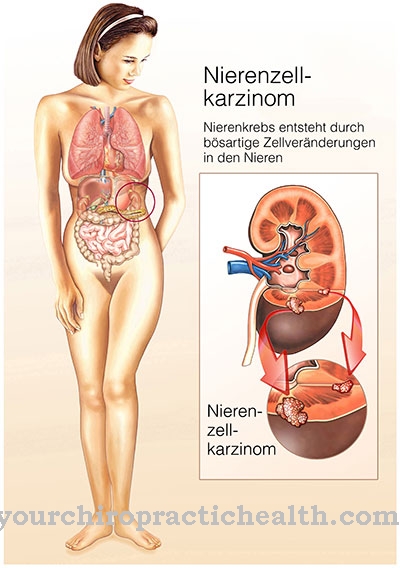

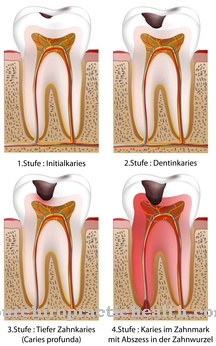

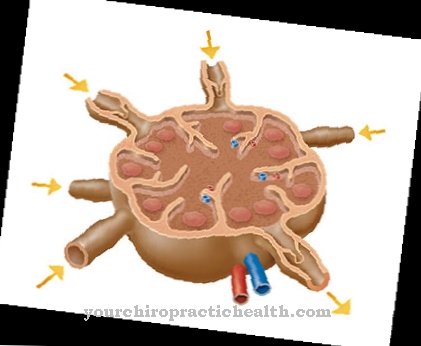





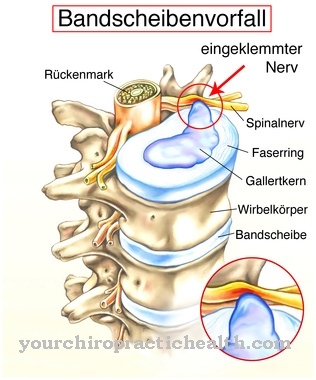



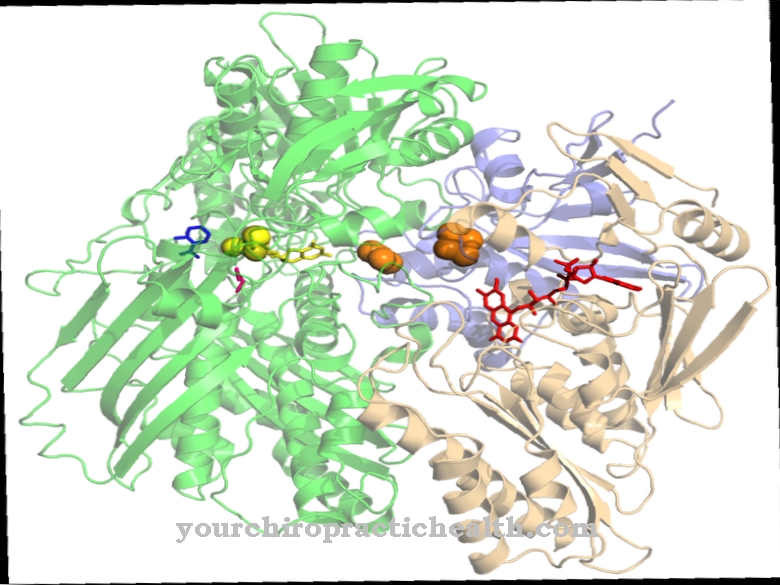
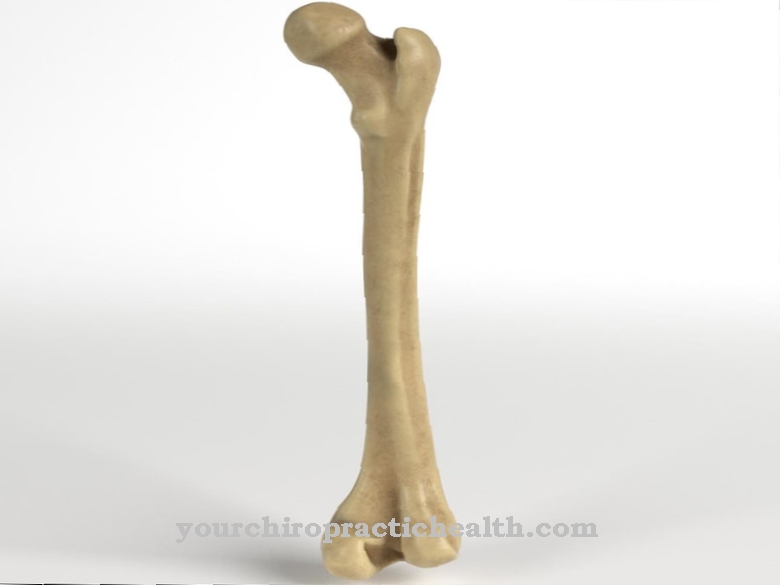




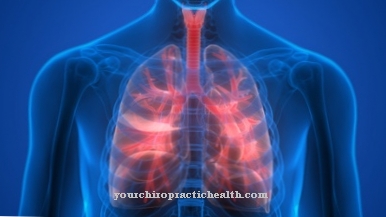
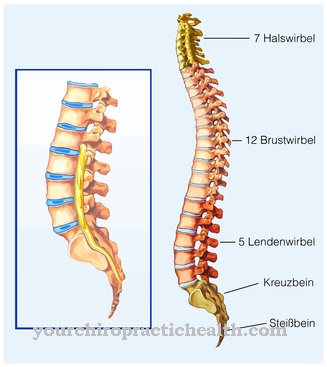
.jpg)
.jpg)

